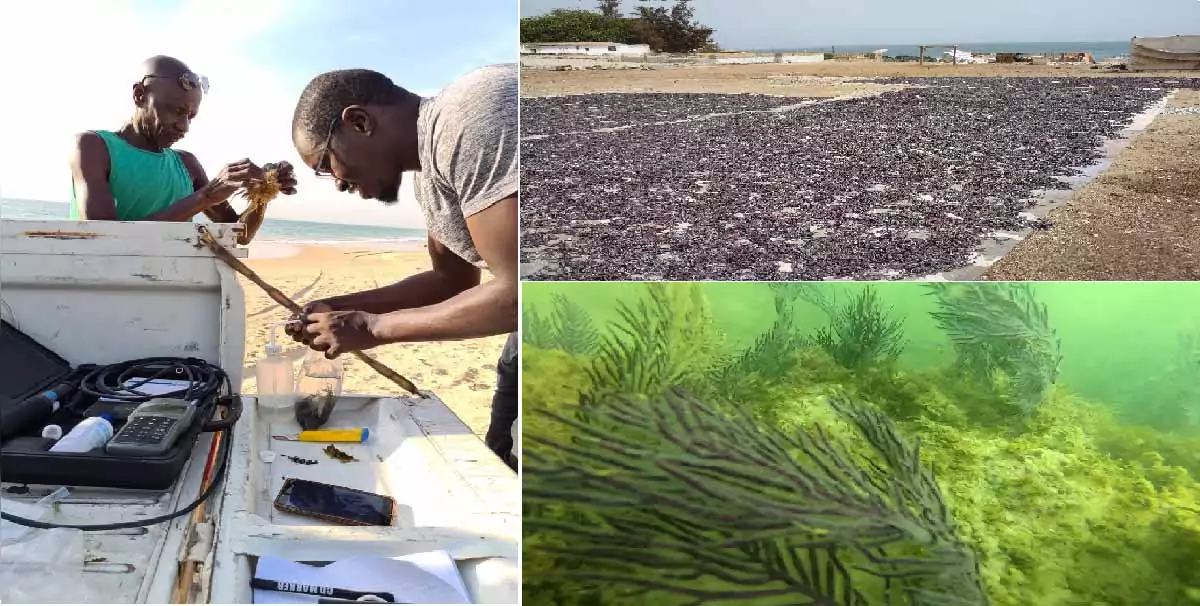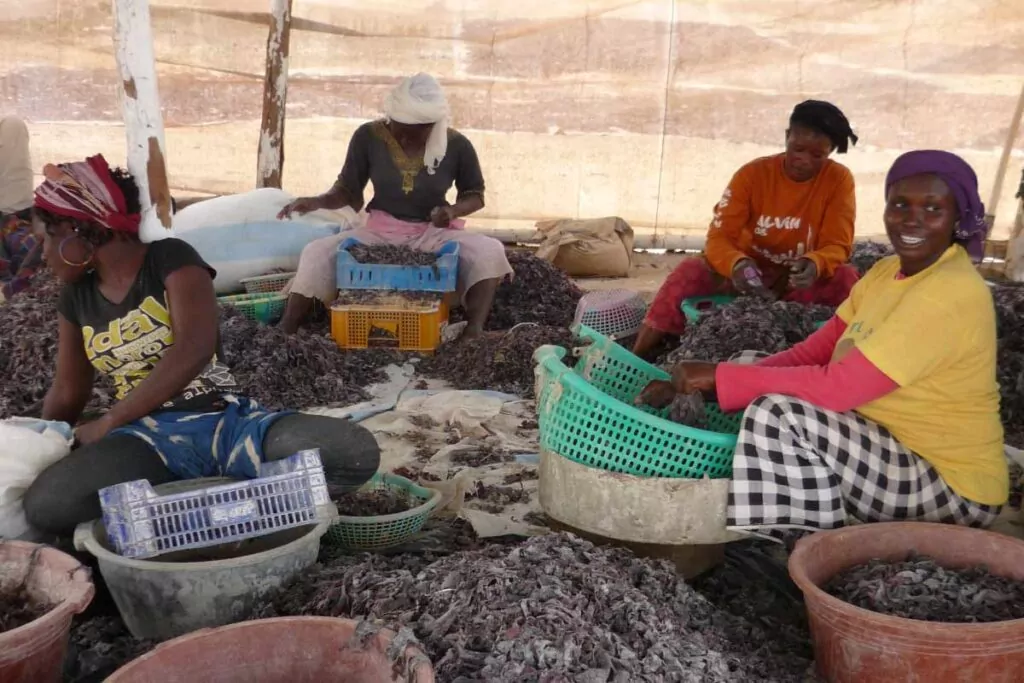During the online Kick-Off meeting on January 20th, activities of the “Seaweed for climate change resilient blue economies, biodiversity and ecosystem services” (CLIMALG-SN) project were presented by Dr Waly Ndiaye, Institut Sénégalais de Recherche Agricole (ISRA) and Dr Patrice Brehmer, French Institute for Sustainable Development (IRD), to 50 national and international researchers, representatives of ministries, public institutions and some private stakeholders. Besides manifesting the project aims and activities to provide a road map to policymakers towards a sustainable exploitation (harvesting and cultivation) and conservation of seaweed as a habitat in Senegal and neighbouring countries, the attendants also worked out the state of science and knowledge gaps in algae population studies. The workshop provided a platform to gather ideas for collaborations with relevant projects and stakeholders.
The importance of a better knowledge on algae in order to promote their use as an alternative source of income for the local population, and the need to establish synergies with the other ISRA centers, was highlighted by Dr Abdou Ndiaye (ISRA) and Dr Saliou Fall, Director of the National Laboratory of Plant Production (LNRPV). Seaweed valorization was identified as a main aspect in order to address certain key issues such as food, source of bioactive compounds and fertilizer. It was pointed out that CIMALG-SN is developing a database on Senegalese seaweed, which will contain some of the required information and correct the current mismatch in species count in the already existing global algal database Algaebase and the recent work by Senegalese researchers, as noted by the PhD candidates Modou Gueye Fall and Aminata Diéme from the Department of Plant Biology of the University of Dakar (UCAD). The CLIMALG-SN project will not only identify reasons for the mismatch but also establish a thesis supervision agreement between CLIMALG-SN and the University of Dakar (UCAD) in order to federate actions.
Dr Birgit Quack and Dr Florian Weinberger, researchers at the project partner institution GEOMAR Helmholtz Centre of Ocean Research Kiel in Germany, stated that macroalgae have a great potential for restoration, remediation and exploitation. Knowledge transfer between the different stakeholders is needed to unlock its potential for the sustainable development of the Senegalese coastal environment, according to Quack. The workshop addressed the topic of DNA barcoding of seaweeds for more accurate identification of environmental DNA in coastal waters. This method aims to identify habitats that harbour important species and coastal sections with high and low biodiversity and to facilitate monitoring of seasonal changes and effects of interventions, according to Weinberger.
Other impulses in the discussion were set by Mr Selle Mbengue (Directorate of Management and Exploitation of the Seabed, Ministry of Fisheries and Maritime Economy, DGFEM), who contributed ideas about the quantification of algae biomass along the North Coast. Dr Phillip Hess, Ifremer, France, underlined the interest to collect seaweeds to monitor marine pollution including harmful algal blooms (HABs). Prof. Dr. Deniz Tasdemir, Director of GEOMAR Centre for Marine Biotechnology and Head of Marine Natural Products Chemistry Research Unit, offered her pharma-ecological expertise to characterize the chemical constituents. Dr Hamet Diaw Diahdiou, former head of Oceanographic Research Center of Dakar (CRODT), also provides the project with his knowledge and expertise.
It was emphasized that the local initiatives, like the use of algae in the development of ice packs for the preservation of fish, will be identified and communicated with other stakeholders, such as the National Aquaculture Agency (ANA). Dr. Demba Tine, ANA, underlined the commitment of ANA to join the action and plan to raise the public awareness on seaweed in a cooperation between the project and the agency.
The meeting was closed by Dr Mika Diop, representative of the inter-governmental organization the Sub-Regional Fisheries Commission (SRFC), acting for seven neighboring countries and Dr Modou Thiaw, the representative of the Director of CRODT.


